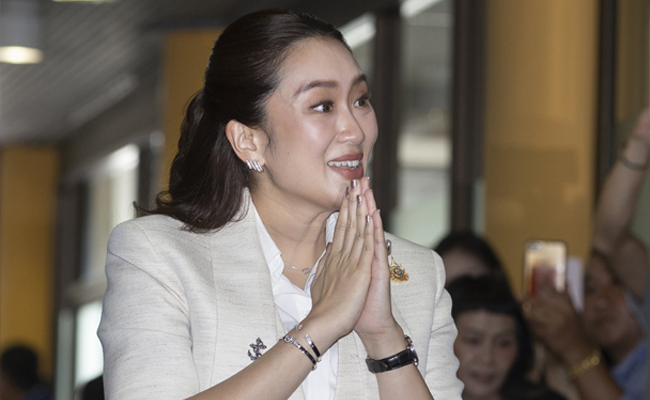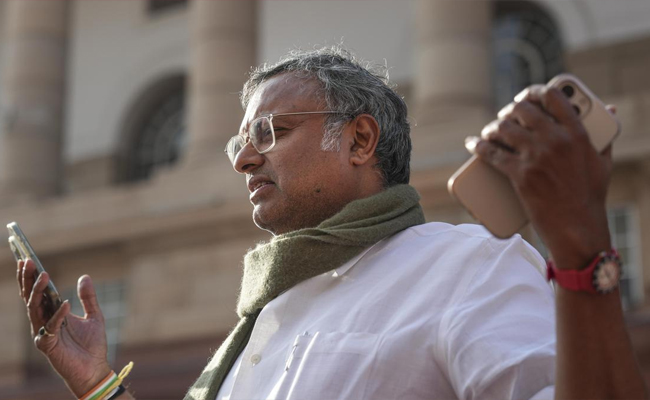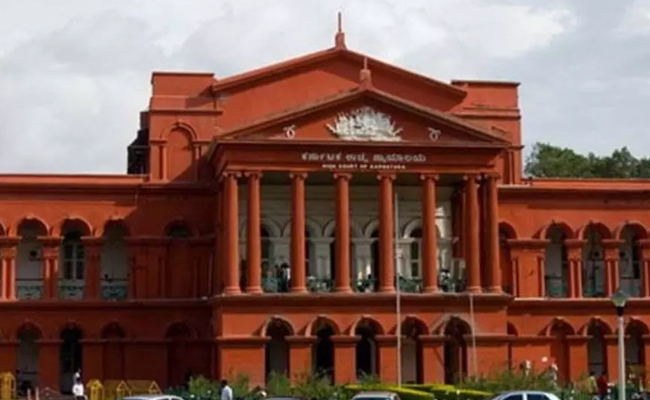Bangkok (AP): Thailand's Parliament elected Paetongtarn Shinawatra, the youngest daughter of the divisive former leader Thaksin Shinawatra, as the country's new prime minister Friday.
Paetongtarn becomes Thailand's third leader from the Shinawatra family, after her father, who was ousted by coup before returning from exile last year, and her aunt Yingluck Shinawatra, who lives in exile. Paetongtarn also became Thailand's second female prime minister after her aunt and the country's youngest leader at 37.
She is the leader of the ruling Pheu Thai party but was not an elected lawmaker, which was not required for her to be a candidate for prime minister. Paetongtarn was the sole nominee and got a majority of the votes in Parliament with the voting ongoing.
The last prime minister had been removed by the Constitutional Court two days ago over an ethics violation.
Thaksin is one of Thailand's most popular but divisive political figures and was ousted by a military coup in 2006. He is widely seen as a de facto leader of Pheu Thai, the latest in a string of parties linked to him. His residual popularity and influence is a factor behind the political support for Paetongtarn.
Her public entry into politics came in 2021 when the Pheu Thai party announced she would lead an inclusion advisory committee. She was appointed as leader of Pheu Thai last year, after she was named one of its three prime ministerial candidates ahead of the polls.
When Paetongtarn was on the campaign trail for Pheu Thai, she acknowledged her family ties but insisted she was not just her father's proxy.
“It's not the shadow of my dad. I am my dad's daughter, always and forever, but I have my own decisions,” she told a reporter.
However, her father's shadow is too big to be dismissed and her work will not be easy with him continuing to call political shots for Pheu Thai, said Petra Alderman, a political research fellow at England's University of Birmingham.
"Thaksin was a political force to reckon with, but he was also a liability," she said, “He has a tendency to overplay his political hand, so serving in his shadow has never been easy.”
Paetongtarn's nomination followed the removal of Prime Minister Srettha Thavisin on Wednesday after less than a year in office. The Constitutional Court found him guilty of a serious ethical breach regarding his appointment of a Cabinet member who was jailed in connection with an alleged bribery attempt.
It was the second major ruling in a week to shake Thai politics. The same court last week dissolved the progressive Move Forward party, which won last year's general election but was blocked from taking power. The party has already regrouped as the People's Party.
Pheu Thai and its predecessors had won all national elections since 2001, with core populist policies pledging to solve economic problems and bridge income equality, until it lost to the reformist Move Forward in 2023. It, however, was given a chance to form a government after Move Forward was blocked from taking power by the previous Senate, a military-appointed body.
Move Forward was excluded from the coalition by Pheu Thai, which went on to join hands with parties affiliated with the military government that ousted it in a coup. The move drew criticism from some of its supporters but party officials say it was necessary to break the deadlock and start reconciliation after decades of deep political divisions.
Thaksin returned to Thailand last year after years in exile in what was interpreted as part of a political bargain between Pheu Thai and their longstanding rivals in the conservative establishment to stop Move Forward Party from forming a government.
The former senators were given special power to veto a prime ministerial candidate by the constitution adopted in 2017 under a military government. However, that power expired when their term ended in May. New members of the Senate, selected in a convoluted process last month, do not retain the veto.
A candidate now needs just a majority from the lower house, or at least 247 votes. The current 11 party-coalition led by Pheu Thai now has 314 lawmakers in the lower house, and they have declared their unanimous support for Paetongtarn.
The coalition under the leadership of Paetongtarn could strengthen their unity because Paetongtarn possesses something that Srettha does not — a direct line to her powerful father who has the final say — said Napon Jatusripitak, a political science researcher at Singapore's ISEAS-Yusof Ishak Institute.
“In a strange way, it creates a clear chain of command and curbs factionalism,” he said. “Paetongtarn will be given clear jurisdictions on where she can exercise her own agency and where it is a matter between her father and the coalition members.”
With Move Forward dissolved and the party's only prime ministerial candidate Pita Limjaroenrat banned from political activities, Napon believes it's the time that the rest of major political parties resume a “game of musical chairs” of the premiership race that has been put on hold “with an agreement to share power, regardless of who becomes the prime minister.”
“Most importantly, the overarching goal remains the same: to keep the music playing and exclude the reformists from power,” he said.
Let the Truth be known. If you read VB and like VB, please be a VB Supporter and Help us deliver the Truth to one and all.
New Delhi (PTI): At least 10 flights were cancelled and more than 270 flights were delayed at the Delhi airport due to fog and low visibility conditions on Tuesday.
An official said 6 arrivals and 4 departures have been cancelled for the day.
ALSO READ: Central laboratory confirms avian flu outbreak in parts of Alappuzha, Kottayam districts
Over 270 flights have been delayed and the average delay time for departures is 29 minutes, as per information available on flight tracking website Flightradar24.com.
"Visibility at the airport is improving; however, flight departures for certain destinations may experience delay," Delhi airport operator DIAL said in a post on X.
The Indira Gandhi International Airport (IGIA) in the national capital handles around 1,300 flight movements daily.





